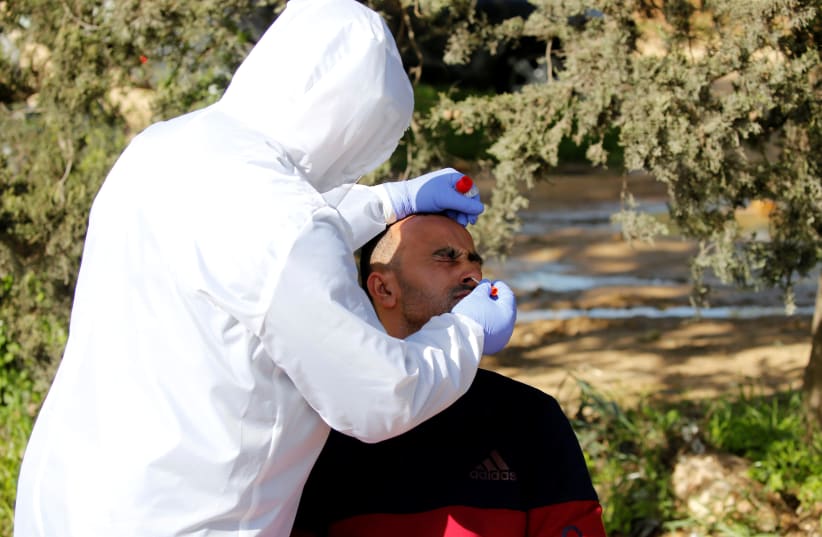Following the recent spike of coronavirus cases in the West Bank, Palestinian Authority PM Mohommad Shtayyeh announced a lockdown within the landlocked region, according to the Wafa news agency.
Over the weekend, the Palestinian Health Ministry announced a total of 274 new coronavirus cases, 207 were diagnosed on Friday and 67 diagnosed on Saturday. For comparison, the Palestinian population has only seen a total of 1,862 cases, meaning that the recent rise of cases equals close to 15% of overall cases. The number of cases include Palestinians in east Jerusalem, as well as Gaza and the West Bank.
Shtayyeh has ordered further restrictions following the drastic rise in cases. He ordered all Palestinians with Israeli nationality to not enter the West Bank for one week.
Furthermore, a full closure of the worst hit villages and neighborhoods were announced. He also enacted measures to impose penalties on anyone who does not follow the Health Ministry restrictions.
Additionally, local emergency committees in all the villages, cities and refugee camps in the West Bank were reactivated, Wafa News reported.
The recent outbreak has caused concern for Palestinian officials. On June 19, the PA Health Minister Mai al-Kaila announced that it was the beginning of the second wave.
On June 21, Shtayyeh announced a series of measures to curb the spread of the disease, which included putting Nablus under lockdown for 48 hours, as well as a five-day lockdown within the Hebron Governorate to enable medical teams to control the epidemiological situation.
A suspension on weddings, receptions, graduation parties, mourning houses and all forms of gatherings were also announced.
